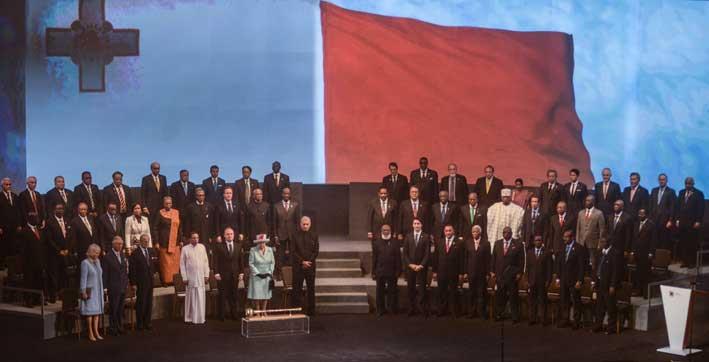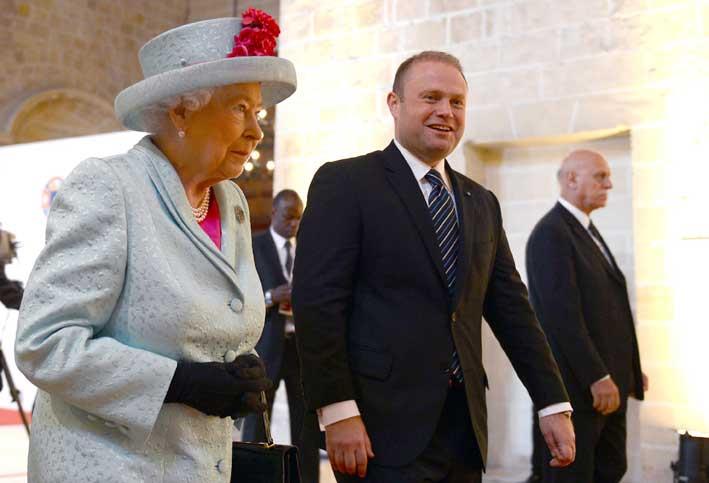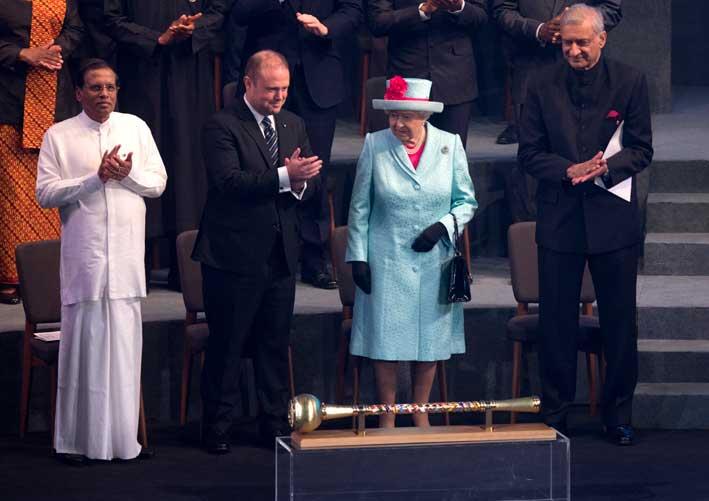While some people see the Commonwealth as a declining entity, whose relevance wanes with every passing day, UK Minister of State at the Foreign and Commonwealth Office Hugo Swire believes that the Commonwealth is more relevant today than it has ever been.
“The Commonwealth provides a forum where people with shared values, underpinned by the Commonwealth charter, can come together and discuss issues that affect us. The question is – is it used enough? The answer to that is ‘No’.

“It consists of 53 countries throughout the world, with 17 per cent of the world’s GDP, and economic growth within the Commonwealth is one of the key things we are determined to drive. It is estimated that trade between two Commonwealth countries results in savings of around 20 per cent. There’s a common language and common law, and thus it is easier for trade. Part of the way to eliminate poverty in countries is increased trade, and that’s why we are so supportive of the business forum and the Commonwealth Enterprise and Investment Council.
“I always ask myself: ‘if the commonwealth didn’t exist in the 21st century, would you invent it?’ and the answer is a resounding ‘Yes’. The fact that there are other countries queuing to join the Commonwealth means it’s a vibrant organisation of equal member states from right across the world. These 53 countries come together and can be an enormous force for good in the world, from the alleviation of poverty and disease, to tackling radicalisation.”
Mr Swire mentioned a few other issues the Commonwealth is eager to tackle, such as climate change. “We are looking at ways to create blue and green bonds that would allow smaller countries access to smaller amounts of financing for climate mitigation projects.”

The Commonwealth has to be different from other organisations. “The UK, for example, is a member of the EU, NATO, the UN Security Council, G8, etc. The key to the Commonwealth is that it is a voluntary organisation. It is a commonwealth of equal states with the same status.”
Asked about the possibility of a free trade agreement between Commonwealth states, Mr Swire replied: “If you are a member of the EU you can’t just go around the world creating/negotiating new bi-lateral trade arrangements, but it is cheaper to trade between Commonwealth states, and we need to continue to grow trade.”
As for the varying level of commitment towards human rights in Commonwealth countries, he spoke of the values in the Commonwealth Charter and Magna Carta, both of which refer to respecting both people’s way of life and their human rights. “The Commonwealth does have some way to go on that. Some countries are in a different space to others on respecting people’s choices. We can work on it, but in any organisation there are those working at different speeds.”

Mr Swire does admit that there is room for change within the organisation. “The Commonwealth needs to rediscover its own confidence, and I think everyone is calling out for strong organisational leadership from the Secretariat and for focus on the aforementioned issues, to ensure that those who signed the Commonwealth Charter abide by what they have signed.”
The Commonwealth is used to confronting global issues that are a problem for all members, he explains, be it the radicalisation of youth or immigration. “There is an organisation out there (ISIS) that has set its face against the values we hold dear. This is a battle for values and freedom and ideas, and the Commonwealth needs to act more closely together on this.”
As for quelling the rise of extremism, Mr Swire believes there is much that the Commonwealth could do. “We need to work with our young people to show them that life should be about religious tolerance and freedom of choice, and to reject this hijacked version of Islam, as promoted by organisations like ISIS, and repellent ideologies that are warped interpretations of ancient religions. We have a lot of work to do across the Commonwealth and we could put more resources into this.”
Asked to comment on the ever-increasing voice of the right-wing, Mr Swire said that, politically, there has not been a rise in the UK and as for those who yell and try to make their voices heard on social media: “There are always going to be those who react to immigration in extremist ways, and that is neither desirable nor helpful. We need to deal with the core issues of what contributes to migratory factors. The UK, in terms of Syria, gives over £1bn in aid and we are the second-largest donor in the world to refugees in camps in Lebanon and Jordan. The UK is also taking over 20,000 Syrian refugees over the next five years: we are playing our full part.”
Mr Swire was in Malta for last week’s Commonwealth Heads of Government Meeting.